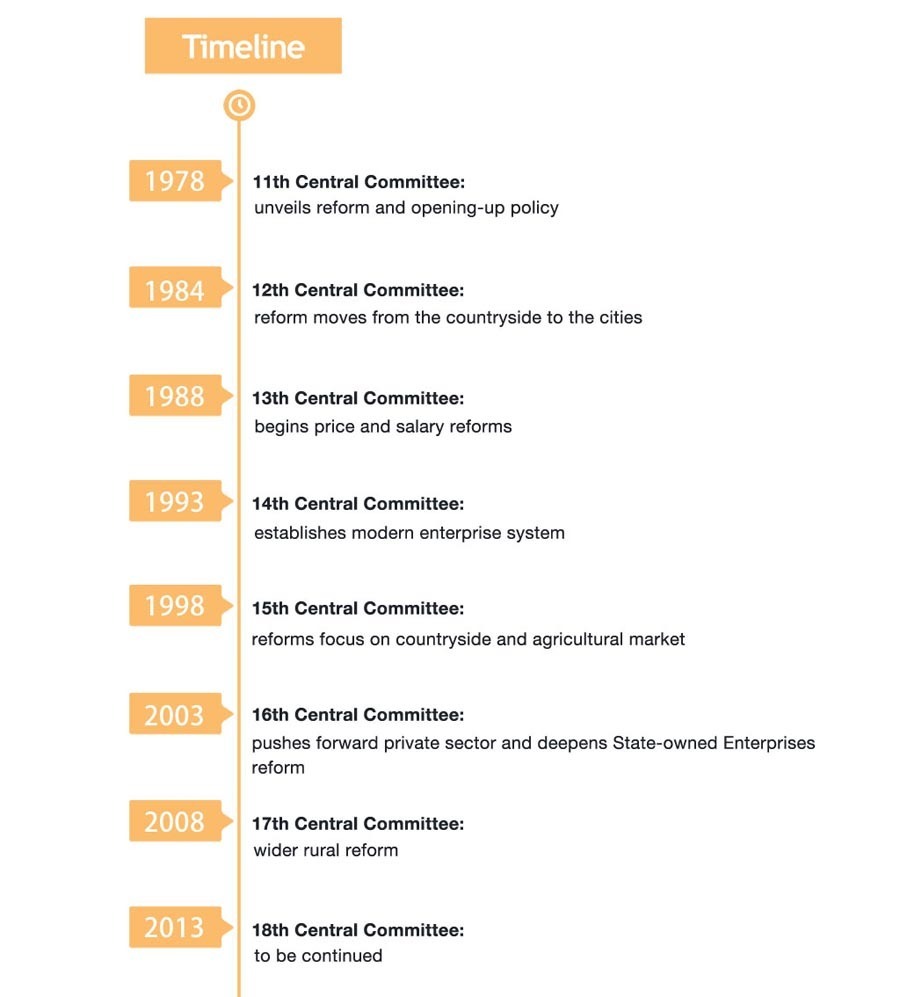

|
Editor's Note: The previous Third Plenary Sessions of the Central Committee of the ruling Communist Party of China (CPC) in the past three decades introduced major reforms that were pivotal to the country's development. The 18th CPC Central Committee, composed of more than 200 senior Party officials, will convene its third plenum on November 9 - 12 to discuss major economic and social issues concerning comprehensive reform. |
|
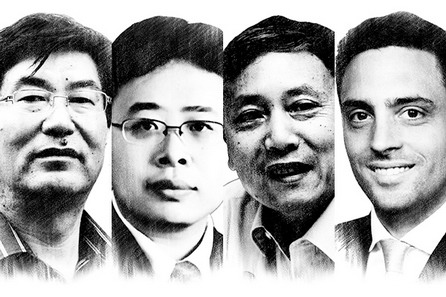 |
Experts foresee reform of hukou, capital flow The Third Plenary Session of the 18th CPC Central Committee is expected to steer the country to an historic turning point by unveiling a package of measures to deepen reforms to achieve sustainable development. China Daily invited four experts in economics as well as social and political studies to share their insights and expectations of the meeting and China's future reforms. What would be your most expected reform in China? Why? Opening the capital account would be one of the most expected reforms. The main benefit is that it could lead to better returns for Chinese savers, which could then lead to higher consumption of higher savings. Read more>>
|
|
What sectors would experience massive reforms? The authorities are going to put forward reform guidelines, rather than concrete measures, during the session. Just as President Xi Jinping put it many times previously, the reform guidelines would be comprehensive. Read more>> What would be the biggest challenges and risks for carrying out reforms? All I can see are two potential risks in the short run, or next year. The first is inflation. The consumer price index is likely to rise to 3.4 to 3.5, but it will still remain at a manageable level. Besides, the producer price index has been contracting for a long time. So a price hike may be heartening news to manufacturers. Read more>> |
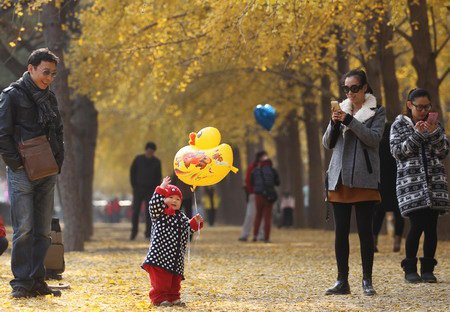 |
|
Reform previews |
|
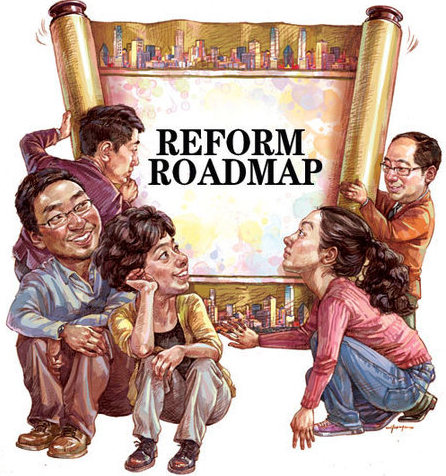 |
Reform roadmap before key meeting Ahead of the Communist Party's much awaited plenum that begins on Nov 9, expectations are high that the meeting will provide the future reform agenda for China and clear the decks for sustainable, balanced development. As the 200 members and 170 alternate members of the Party's Central Committee get ready to meet inBeijingto discuss among other things China's economic blueprint, experts agree that reforms will undoubtedly be the main point of discussions. Historically, third plenums have been the springboard for key reforms in China, particularly on economic matters. While some experts feel the meeting may call for more bold, drastic reforms, others feel it will be a case of gradual, incremental changes. Yu Zhengsheng, China's top political adviser, in a recent interview with Xinhua News Agency, indicated that the meeting will "principally explore the issue of deep and comprehensive reforms". The reforms this time "will be broad and will be unprecedented", he said, adding: "They will strongly push forward profound transformation in the economy, society and other spheres." The Political Bureau of the Communist Party of China Central Committee said in a statement on Oct 29 that the realization of the Chinese dream of national rejuvenation, a concept that has been promoted by the new Party leadership, requires deepening reforms comprehensively.
|
|
Taxation reform/income distribution |
|
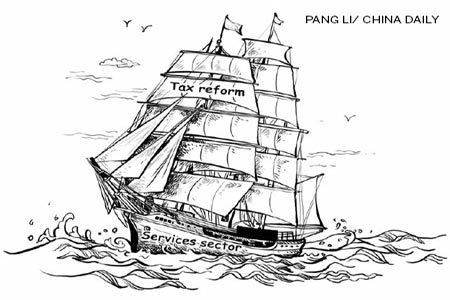 |
VAT reforms to gain pace next year The Chinese government is embarking on an ambitious reform program for its indirect tax system. The objective is to replace the current dual system of indirect taxes - value added tax (VAT) and business tax (BT) - with a single VAT system, which applies to the entire goods and services sector. The reform will be implemented progressively over a period of time, with BT being replaced by VAT on a sector-by-sector and province-by-province basis. It started in Shanghai on Jan 1, 2012, with the transition to VAT for "modern services" and transportation sectors, before being extended to the rest of the country on Aug 1, 2013. Read more>> |
|
Hopes high on income distribution reform Income distribution reform has once again come under the spotlight in China as observers pin high hopes on the upcoming key session of the Communist Party of China CPC scheduled to open on Saturday.In February, the government unveiled a guideline to reform income distribution mechanisms amid growing public concern over the widening wealth gap, though details on a timetable for the reform have yet to be made available. "There's no doubt it's at the top of agenda, considering the urgency of the issue," said Chi Fulin, president of the China Institute for Reform and Development, a Hainan-based think tank. Read more>> |
|
|
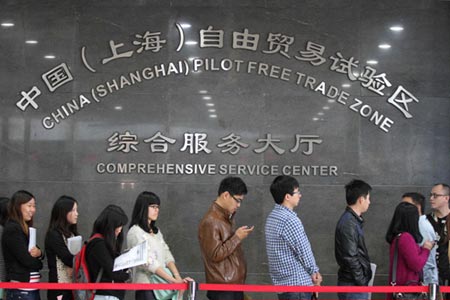 |
The Third Plenary Session of the 18th National Congress of the Communist Party of China is expected to set the tone for new reforms in the coming years, and there are high expectations that it will signal further financial reforms. To eliminate the structural imbalances in the country's financial sector will be a key issue in any financial reforms. Aside from the marketization of its interest and exchange rates, the emphasis should be on how to raise the efficiency of its financial resources distribution and how to help its real economic activities gain easier access to financial support. |
|
Deepening reforms expected to vitalize market As a young company, China's largest private shipbuilder, Rongsheng Heavy Industries, which just celebrated its 8th birthday last week, did not expect to brace the winter of its industry so soon. The company's operating revenues for 2012 stood at 7.9 billion yuan ($1.3 billion), down 50 percent year-on-year, forcing the company to downsize its employees from 40,000 to 8,000 in two years, according to company president Chen Qiang. |
|
|
Urbanization/land reform |
|
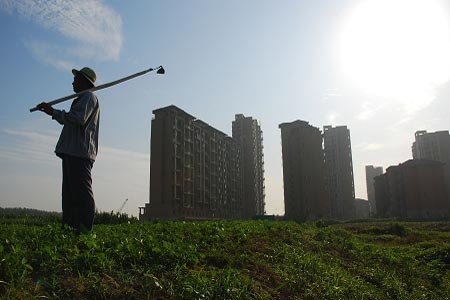 |
Plenum offers new platform for urbanization The Third Plenum of the 18th Central Committee of the Communist Party of China may be a good opportunity to push the country's ambitious urbanization bid a major effort to change the development model of the world's second-largest economy. The CPC's new leadership designated urbanization as a growth point of the economy and called for quality and new urbanization at its economic work conference in December, after China's exports were adversely affected by the lingering global crisis. China's urbanization ratio hit 52.57 percent in 2012, increasing almost 1 percentage point each year from 17.9 percent in 1978. The per capita gross domestic product was about $6,102 in 2012. The steady and rapid urbanization seems sustainable for awhile along with the economic growth. Read more>> |
|
Reform vital for modern agriculture's success Premier Li Keqiang said the development of modern agriculture relies on reform. Li said the reform of agriculture should respect the innovation and willingness of farmers, and the most important purpose of reform is to ensure the well-being of farmers and improve their lifestyle. Li made the remarks during a trip to Fuyuan county, Heilongjiang province, on Tuesday. In Fuyuan, Li inspected cornfields, a farm machinery center and talked with tractor drivers. He encouraged them to strive to increase production. Read more>> |
|
Video |
|
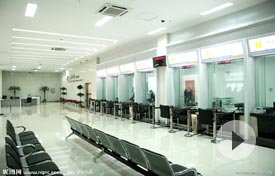
A key part of the meeting will be plans for financial reforms. While optimism from investors has pushed up related stocks to feverish highs, CCTV reporter Cheng Lei show us why the hype shouldn't be part of those expectations. |
|
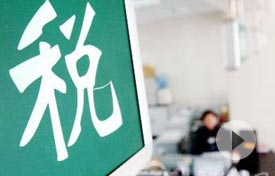 At the upcoming plenary session, fiscal reforms can be expected as well, let's bring back Professor Liu to get his take on this issue. Q1: Changes in tax system to support China's rebalancing. |
|
35 years of reform |
|
|
All-round reform on the agenda China's long-awaited four-day Party plenum is strongly expected to mark another milestone in market-oriented reform. The Third Plenary Session of the 18th Communist Party of China Central Committee starts on Saturday. Historically, the third session has marked many turning points in modern China's economic structure. In 1978, the third plenum of the 11th CPC Central Committee unveiled the nation's reform and opening-up policy, as the Party shifted its focus from class struggle to economic reconstruction. Thirty-five years later, it is still the most frequently mentioned Party meeting, because the policies it adopted laid the foundation for China to become the world's second-largest economy. Read more>> |
|
Previous Third Plenary Sessions |
